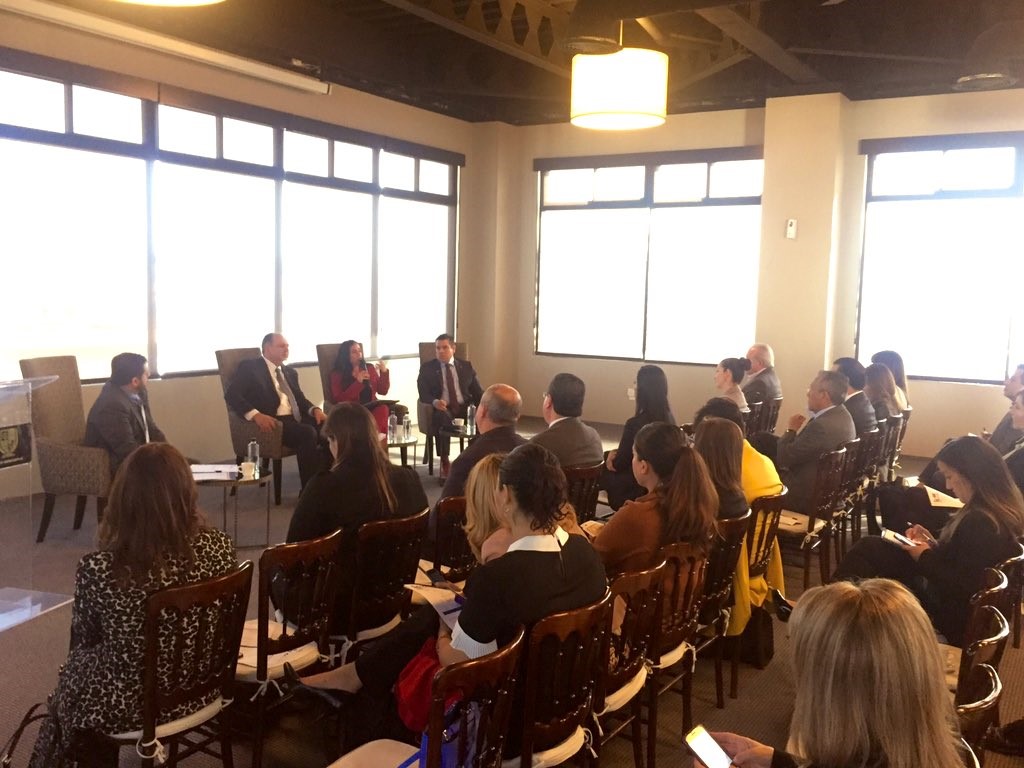February 14, 2019
On January 29th, the Chamber partnered with Consejo Coordinador Empresarial in Tijuana to host an informational forum that provided an overview of the revised agreement and discussed the possible impacts on our binational region.
Moderated by Luis Hernandez, President of INDEX Tijuana, our panelists included Gustavo de Hoyos Walther, President of COPARMEX Mexico, Manuel Muñiz, Global Advisory Partner from Deloitte Tijuana, and Chamber Vice President of International Business Affairs, Paola Avila.
Avila shared that trade agreements help secure cross-border collaboration on important issues such as the environment, education, and public safety stating that, “our region understands how critical the bilateral relationship is for our economies and binational community to thrive.” De Hoyos highlighted that the agreement was reached thanks to the business sector that became engaged and provided valuable information and statistics on how they had leveraged NAFTA to grow. San Diego and Baja California alone created an integrated manufacturing supply chain worth 2.5 billion. Speakers agreed that trade agreements also provide certainty and predictability which are key for attracting foreign direct investment to our region.
